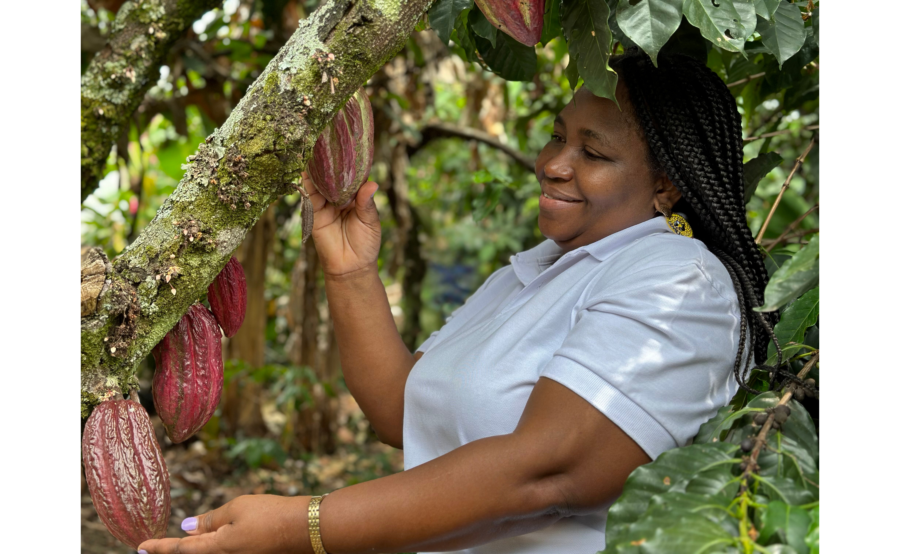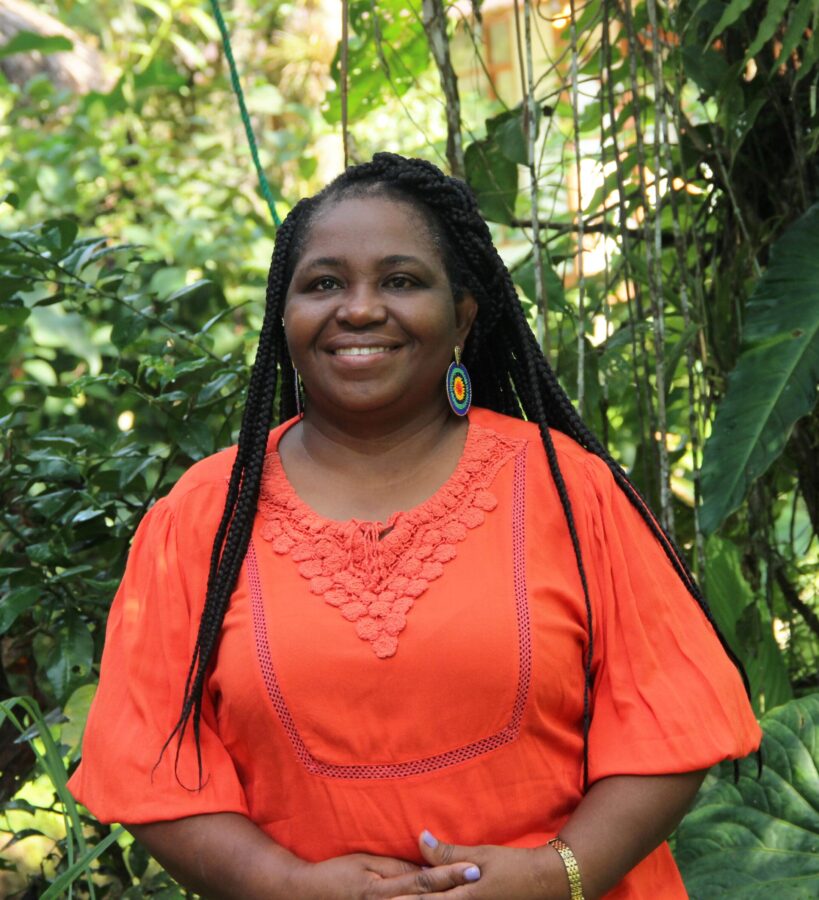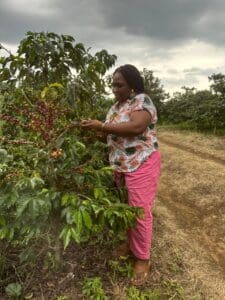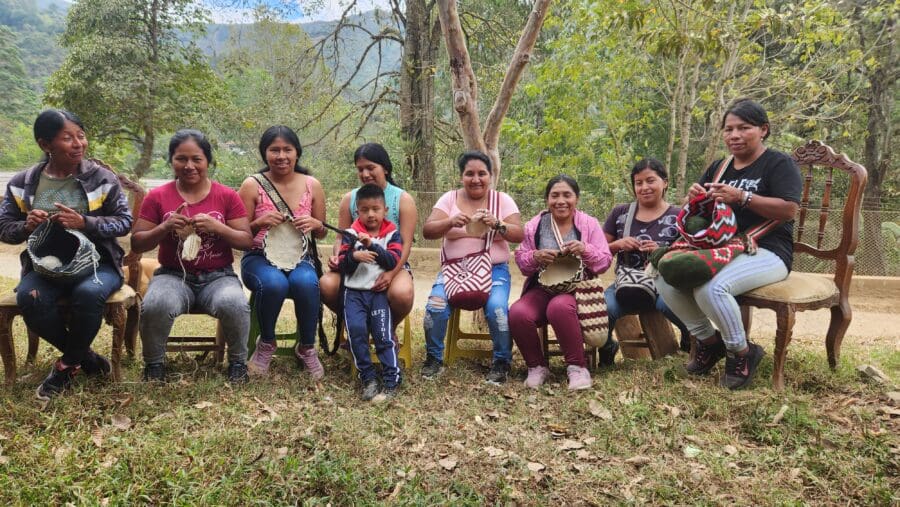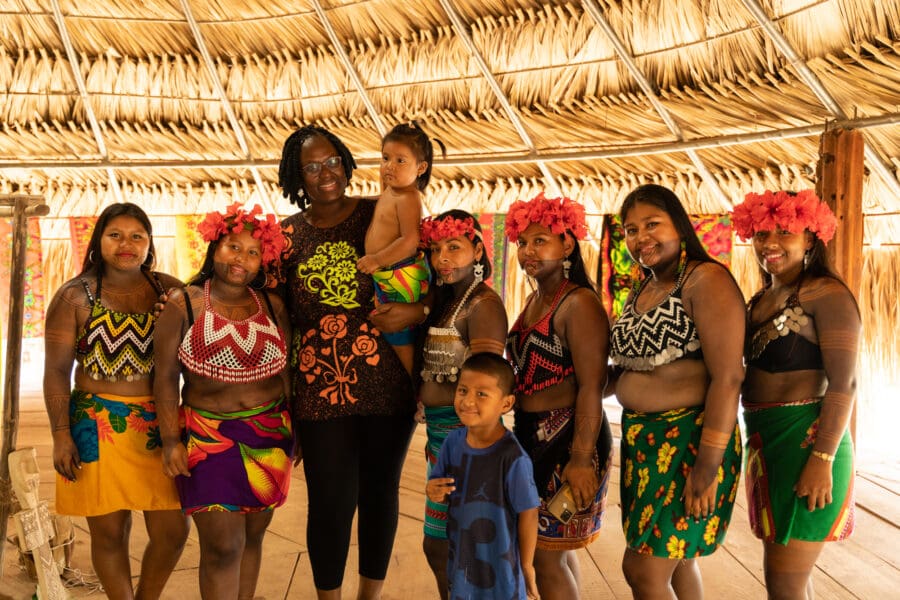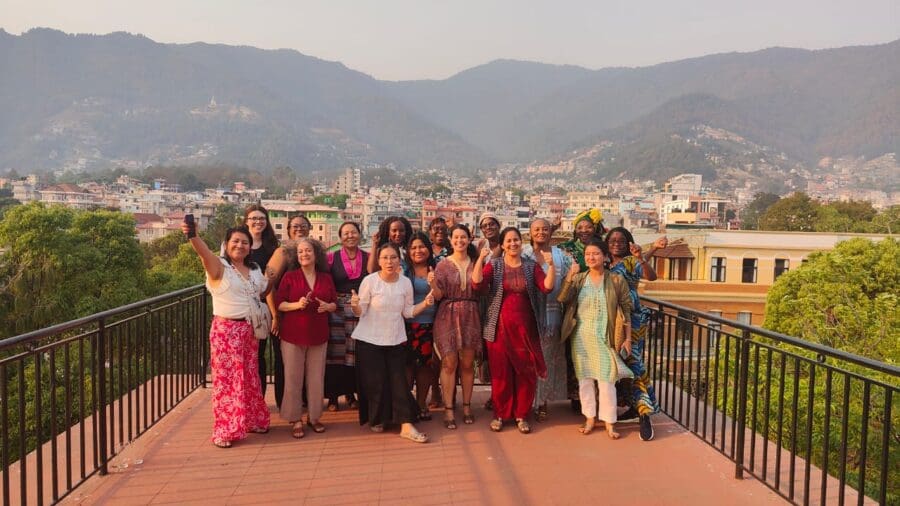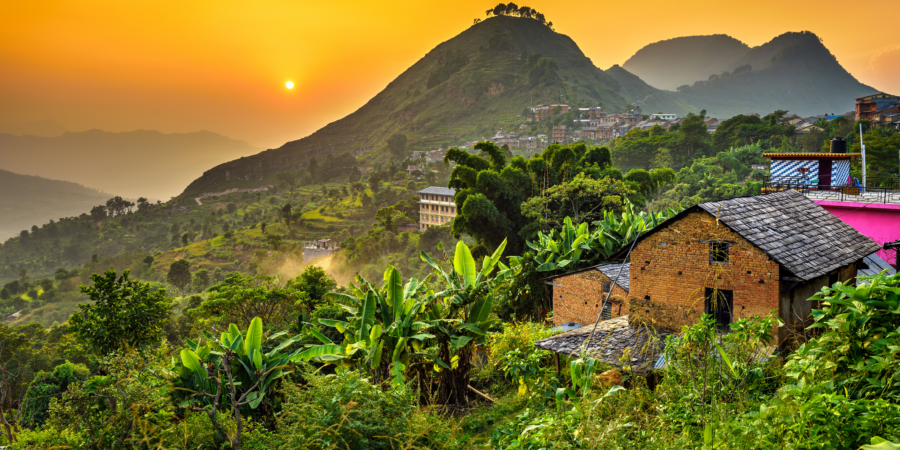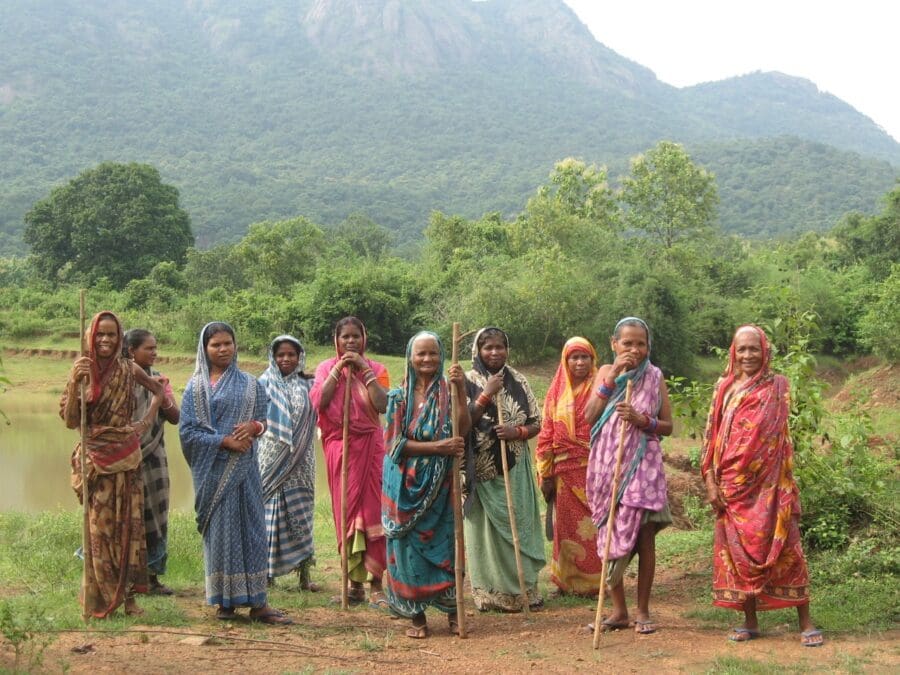The first hands that touched Clemencia when she came into the world were those of her great-aunt, a traditional midwife who went to the small village of La Balsa, in Cauca, Colombia, to welcome her into the world.
La Balsa is located 115 kilometers from Popayán, the capital of Cauca. This township was founded by Franciscan priests in 1634 and then populated by Africans who were sold into slavery for mining exploitation. Clemencia is the daughter of this afro-Colombian heritage.
Despite the suffering of her ancestors, Clemencia’s childhood was spent in a free and safe environment within a large, loving family. She was guided by the example of a father who was a leader committed to improving the living conditions of his community and a mother who worked the land all her life to provide for her family. Clemencia remembers having a happy and trouble-free childhood near Colombia’s Cauca River. The river provided fish and was a source of fun—while children were swimming, fishing, and splashing, women would be singing and washing clothes—and there was a genuine community union where food was cooked and shared collectively.
“We had what we called the traditional farm, which was like the pantry for us. All the subsistence products for the family and food security were sown and collected. From the outside, only rice, salt, and oil were bought because, in addition to crops, there were chickens and pigs. From the Cauca River, fish were extracted for the community, something that was possible before the pollution brought by mining with machines.” – Clemencia Carabalí

